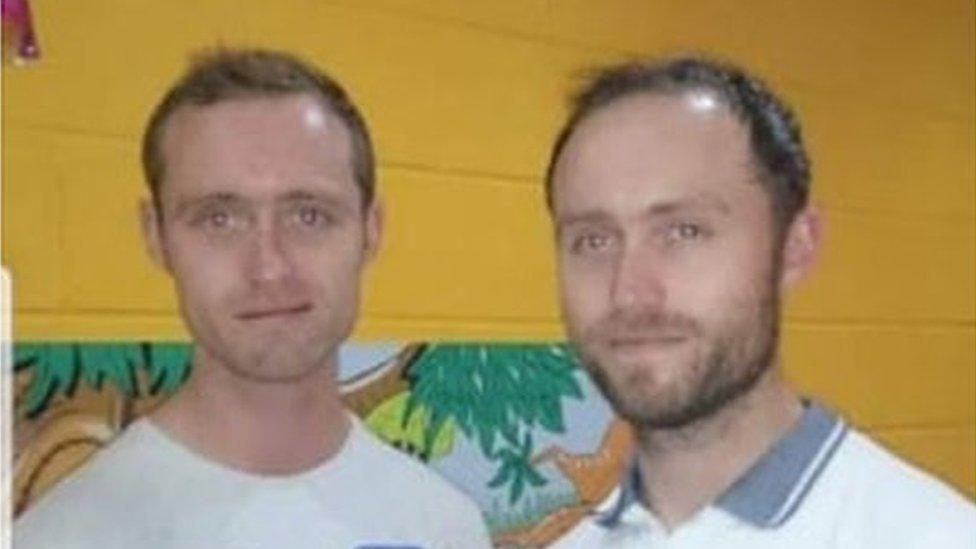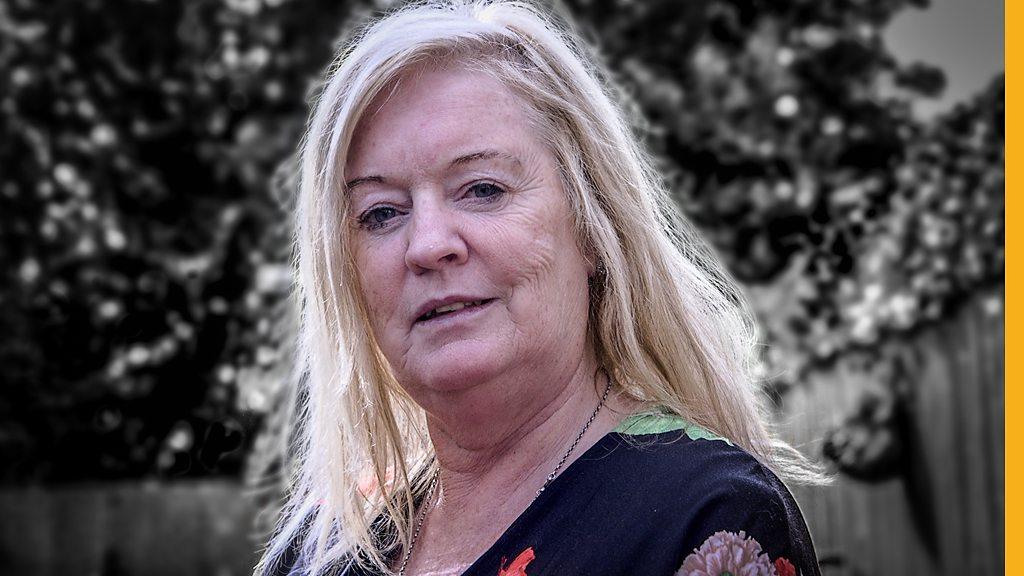Suicide prevention plan 'not ambitious enough', says family
- Published

Colm Butcher (left) and his twin brother Christopher
A man whose twin brother took his own life has said the Department of Health's suicide prevention strategy is "not ambitious enough".
The Protect Life 2 suicide prevention strategy, which was unveiled on Tuesday, aims to bring down the rates by 10% over the next five years.
Northern Ireland has the highest suicide rate in the UK, with five people dying each week.
The Department of Health said it was a realistic strategy.
Colm Butcher, 35 from Magilligan, County Londonderry, took his own life last September.
'Doing ok'
"My brother had the best smile," his twin, Christopher, told BBC Radio Foyle.
"I look back now at pictures and I can tell the sparkle from his eyes had gone.
"He was into fitness, he adored his kids and had a great job.
"We knew he was struggling but he always said he was doing ok."
Christopher said he had fond memories of playing football with his brother and one particular day when they played on a boat at Magilligan Point.
"It was our birthday recently and I found that really hard," he said.
"The devastation hits me every day."
The long-awaited strategy aims to dispel the myths around suicide, including the suggestion that most happen suddenly and without warning.
Instead, it states early intervention can make a real difference.
"Too many people are taking their lives and I don't think a 10% reduction over five years goes far enough," said Mr Butcher.
"It's terrible actually. Many places have a 0% suicide rate plan in place.
"I would ask the department to speak directly to families like ours about the impact.

Colm Butcher played soccer and Gaelic football
"You look back now at some of the signs and I feel like I want to blame myself for not picking up on them.
"People really should feel ok to speak out about their problems."

Where to get help
If you are in the UK, you can call the Samaritans on 116123 or Lifeline on 0808 808 8000.

Conor McCafferty, chair of the group that formulated the strategy for the Department of Health, said the goal was a "realistic figure".
"Last year, we saw 600 people in the Western Trust attempting suicide," he said.
"It's essential that the current services available continue to be funded.
"For this strategy to be fully implemented we need an executive up and running."
The strategy secured cross-departmental support and additional funding of £1.35m through the transformation programme.

The suicide rate in the UK has risen for the first time since 2013
That brings the total funding on suicide prevention in this financial year to more than £9m.
Charities had hoped there would be at least £3m in additional funds.
Siobhan O'Neill, professor of mental health sciences at Ulster University, said there should not be too much focus on the 10% figure.
"If you look at the objectives within the strategy, it's about intervention and if all of those objectives are implemented, then the suicide rate should go down," she said.
"The amount of funding allocated to this strategy at the moment is not going to be sufficient to deliver the objectives without an executive.
"We need to think, as a society, when we are voting in elections about mental health and services in the area."
- Published10 September 2019

- Published13 October 2018

- Published27 February 2015

- Published30 August 2018
